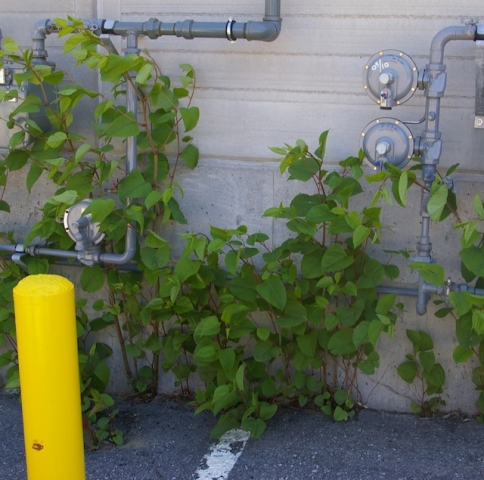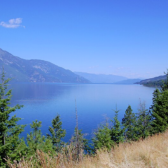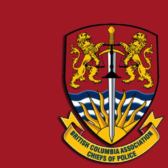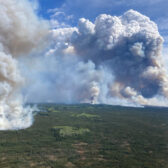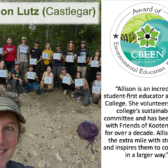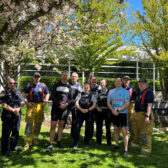Nelson will impose fines for allowing spread of invasive plants
If you own property in Nelson, a city bylaw says you must “prevent the infestation of such property by noxious weeds” and “cut and/or remove noxious weeds from such property to prevent blowing and spread thereof…”
At a recent meeting, Nelson City Council instituted a fine of $250 for non-compliance.
What is a noxious weed?
Noxious weeds and invasive plants (non-native plants that take over from native species) are synonymous. The provincial government, in its Weed Control Regulation 66/85, lists dozens of them, and the City of Nelson in its Property Maintenance Bylaw lists some that are especially problematic in this region (see below).
Invasive plants can, according to Councillor Candace Batycki, “take up space that native plants could be taking up and in a lot of cases the invasive plant does not play the same role in the ecological niche as the native plant would, sometimes including pollinators. They disrupt the ecosystem at the plant level and you don’t have the same ecological richness.”
Batycki is a city council representative on the Central Kootenay Invasive Plant Committee (CKIP). The group’s website states that invasive species are considered to be a serious threat to global biodiversity.
Invasive species have wide-ranging effects
According to the provincial government website Weeds BC, invasive species can:
- Clog waterways used for swimming and boating
- Reduce visibility on transportation corridors
- Act as carriers of disease and insects of beneficial plants
- Destroy recreational opportunities and the beauty of the landscape
- Increase costs for maintaining resources and public utilities
- Kill native grasses and wildflowers including rare and endangered species
- Destroy natural habitat for wildlife, birds, and domestic animals
- Reduce yield and quality of agricultural crops
- Interfere with regeneration of forests
- Increase wildfire hazard
- Increase soil erosion and stream sedimentation
- Ruin water quality
- Destroy habitat for fish and other aquatic organisms
- Decrease land values
Tansy and knotweed
Batycki gives tansy and knotweed as local examples.
“Tansy is a big problem in Nelson and area. It takes up space that native plants could be taking up. It’s all along the dog walk and the waterfront on the east end. Like any of these things they don’t stop at political boundaries. Nelson has a tansy problem because CP Rail has a tansy problem, and the regional district has one, and so these things are important at a regional level.
“Knotweed is very, very difficult to get rid of. It can grow through concrete, it can severely impact infrastructure, and it is starting to have a financial impact in some places. In England it is one of the disclosure pieces when you buy and sell a house. It is very popular because it is a fast-growing privacy screen and once you start seeing it, you realize it is everywhere.”
City “should clean up its own act first”
Councillor Robin Cherbo, when the matter of penalties for weeds came before council, objected, saying the city is the worst offender, and he cited the dog-walk.
He and Mayor John Dooley thought the city should clean up its own act first.
There will be no weed police
Councillor Batycki disagreed. “It is not like the weed police are coming down the road. It is a matter of this is an important thing, let’s learn about it, let’s see what we can do. In a lot of cases it is education, because people don’t know.”
City manager Kevin Cormack said the purpose of the penalty is to provide some authority in situations that are very serious, and that there would not be bylaw officers patrolling the streets looking for offenders.
City is already working on it
Public works manager Karen MacDonald says the city is at work on the problem.
“We have been concentrating on the waterfront areas, working with CKIP and the Selkirk College Environment Program… trying to compete with the Japanese Knotweed and Tansy,” she told The Nelson Daily in an email. “We have also worked with CKIP at Davies Street Park dealing with the Scotch broom. The City provided plants and other materials to CKIP to do this work through grants they received from CBT, Evergreen and Canon.”
Strategy needed
Batycki the city needs to develop a strategy. She says it would list invasive species, explain first lines of defense against them, recommend against having them for sale in local stores, and then go into more detail about how to eradicate them.
“In some cases herbicides are needed. With knotweed what you do is cut it down to the ground and inject a small amount of herbicide into it. That is the only way to get rid of it. We have to understand the difference between crop-dusting your whole yard with Roundup versus very specifically applied herbicides, and we need to get clear about that.”
Nelson’s bylaw lists the following weeds as the worst offenders locally:
- Bighead knapweed (Centaurea macrocephala)
- Black knapweed (Centaurea nigra)
- English ivy (Hedera helix)
- Field scabious (Knautia arvense)
- Policeman’s helmet (Impatiens glandulifera)
- Scotch broom (Cytisus scoparius)
- Coltsfoot (Tussilago farfara)
- Common bugloss (Anchusa officinalis)
- Field bindweed (Convolvulus arvensis)
- Greater knapweed (Centaurea scabiosa)
- Japanese butterbur (Petasites japonicas)
- Meadow knapweed (Centaurea pratensis)
- Fuller’s Teasel (Dipsacus sativus)
- Wild chervil (Anthriscus sylvestris)
- Wild four o’clock (Mirabilis nyctaginea)



